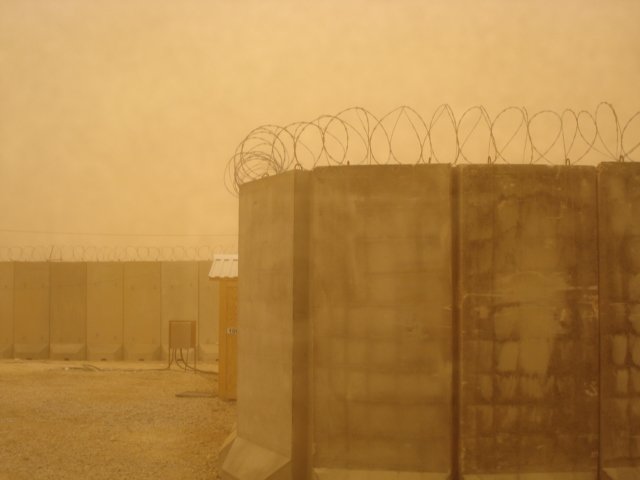
The State Department blog featured an interesting discussion about discrimination against people with disabilities in the FS. I won’t go into details. Suffice to say the idea was that people who go to places like Afghanistan and Iraq derive career benefits and that the system is thus unfair since only the able-bodied can do these kinds of assignments.
This takes the idea too far. I agree that we should make reasonable accommodations to people with disabilities wherever we can, but there are some places where we can’t. If we think a job is important enough to be done, we have to allow those who can do it to do it.
My job in Western Iraq was more vigorous than most others because we had to travel across the largest area of operations in Iraq. I didn’t have to be in top-condition to do the job, but just humping onto a helicopter or into an MRAP with body armor and gear is hard. The chow hall had a wide selection of food, but we were not always near the chow hall. It gets pretty hot and dusty in the Iraqi desert. It is indeed a physical challenge that not everyone can do. It would be life-threatening to send anybody who couldn’t pull his own weight, for the individual as well has his colleagues. This is just true.
I would point out/admit that I have lost some of my ability over the years. That is what happens as you get older. Ability and disability are a continuum. When it comes to running miles in less than six minutes, I have become disabled. This gradient can be deceptive. It is hard to identify the exact point where we are not in good enough condition for a particular task. But that point is reached. This is not like a made-for-TV movie or an after school special. Sometimes it doesn’t matter how much you want something or how much you try.
Nature, war and the laws of physics are not fair.
So what about the compensation? I suppose it depends on what you mean by fair. FSOs are supposed to be worldwide available. Not all of us are and we might lose our worldwide clearance. But good health is a definite advantage. I don’t know how we can get around that. One reason I have been successful is that I don’t get sick very often. You may not succeed even if you show up, but you certainly cannot succeed if you don’t, no matter whether the reason is good or bad.
We will all sooner or later become “disabled” if we live long enough and I suppose being dead, i.e. “vitality challenged” is a significant impediment to success, so that is all our fates. Before that time, we can do our jobs and be productive members of society, and I guess that I think of work as more an obligation than a right. It makes a lot of sense to help everybody be as productive as they can, but you cannot achieve total equality in results.
I had great experience but I didn’t get promoted this year for my work in Iraq. This is okay. I agree that we don’t necessary deserve a career jump just for going to dangerous or unpleasant places. And you don’t need to go to Iraq to find places like that. Many Foreign Service posts are dangerous and unpleasant. The ability and willingness to go to these places – and do a good job while there – is part of our job, part of our work ethic. It is worth something. It should be encouraged. It deserves consideration and it should not be devalued. It makes little sense to subtract one of the big virtues of the FS just because not everybody can achieve it. We need to be reasonable about these things.
Henry Ford said that asking “’who ought to be boss’ is like asking ‘Who ought to be tenor in the quartet?’ Obviously, the man who can sing tenor.” This goes for most things. Ability counts and talents & abilities are not evenly distributed. This is the way it is, whether we like it or not.
